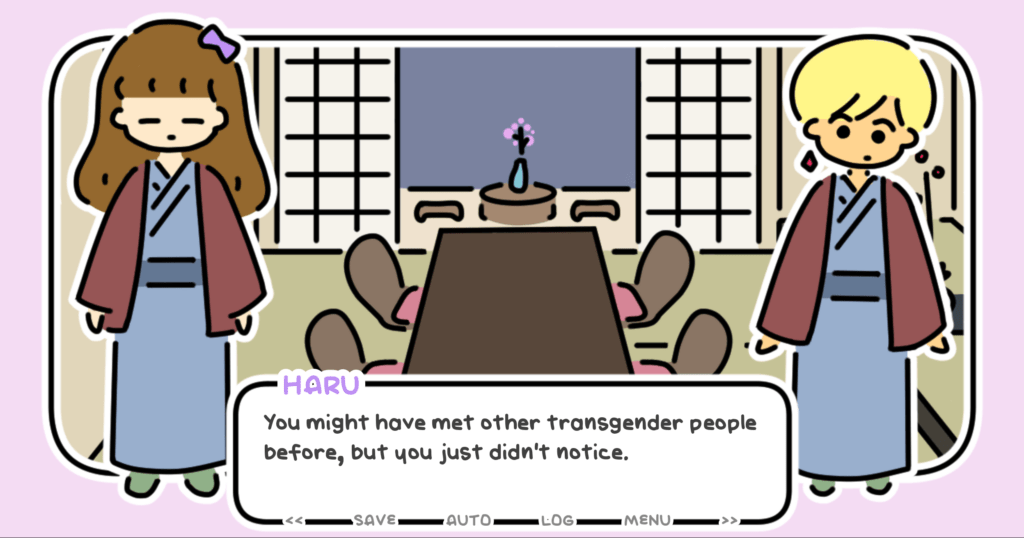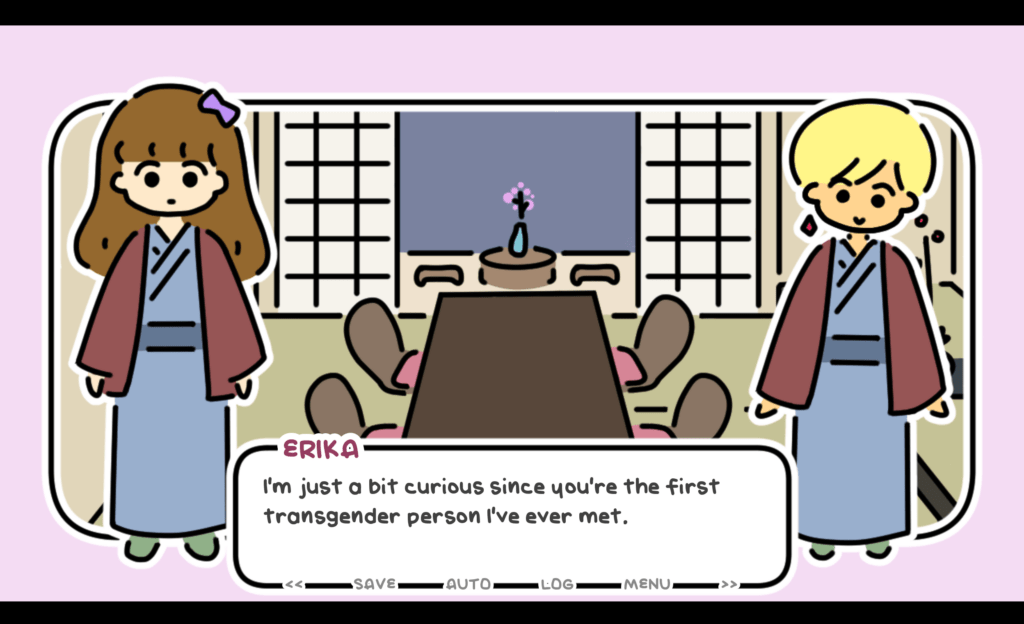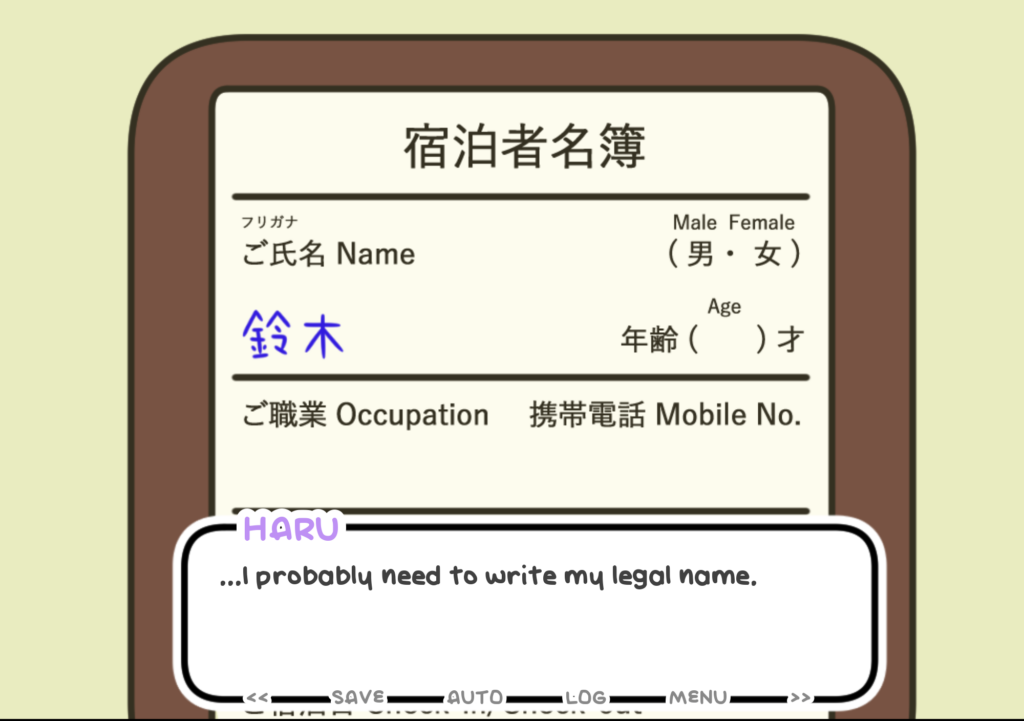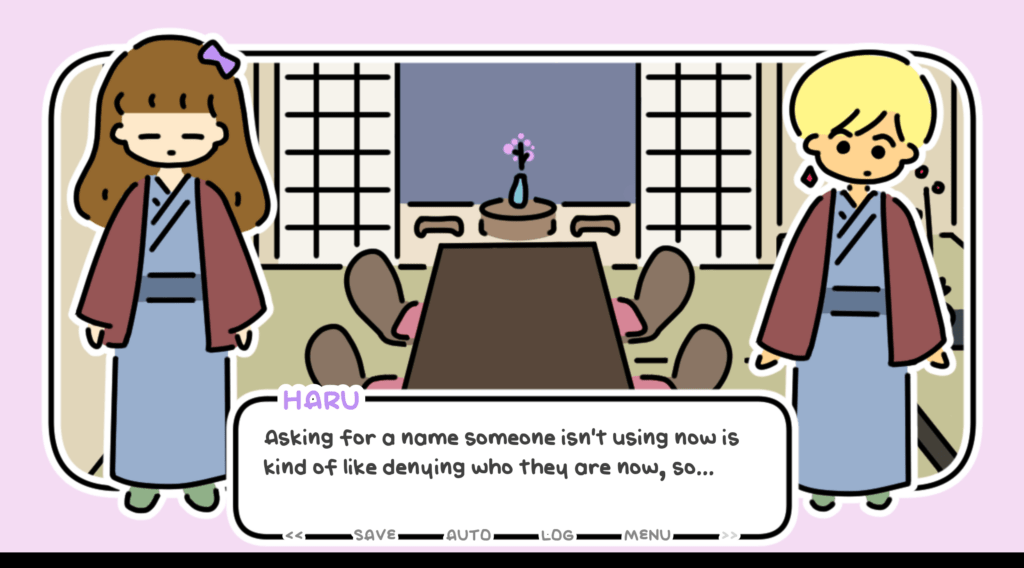
one night, hot springs by npckc is a narrative based game where a transgender woman named Haru is invited to a her childhood friend’s birthday trip to the hot springs in Japan.
This game is a beautiful, relatively easy and simple way for people to engage with and learn about an identity they are unfamiliar with, such as gender diversity. By using a narrative, conversation based game that exists in a “never-ending narrative middle” as most queer and feminist narratives do according to Teresa de Lauretis, people can literally practice having difficult conversations and learn how to be respectful when conversing about unfamiliar topics.
Erika (the third person in this trio trip) represents someone who is well-intentioned and wants to talk about a personal topic she is unfamiliar in order to become a better ally. Despite being well-intentioned, Erika phrases things the wrong way and sometimes blunders her way through the conversation. By having the player as Haru who educates Erika instead of being Erika who makes the mistakes, the player feels more emboldened to take on the lessons of the narrative and develop an understanding of the trans experience.


When they check in at the hot springs, Haru has to use her legal name which is her dead name. Later, Erika repeats Haru’s dead name back to her. The player (as Haru) has to now choose between confronting Erika that is not okay or to let it slide. Just by being presented these options, the player learns that is not okay. The options also are a good way for people to learn to choose the option to advocate for themselves.


These are only two examples of the many many more in one night, hot springs that demonstrates how powerful of a tool games can be as an “agentic-training device” that will teach feminists to acknowledge and assert their agency! As well as a perfect format for share feminist stories.

